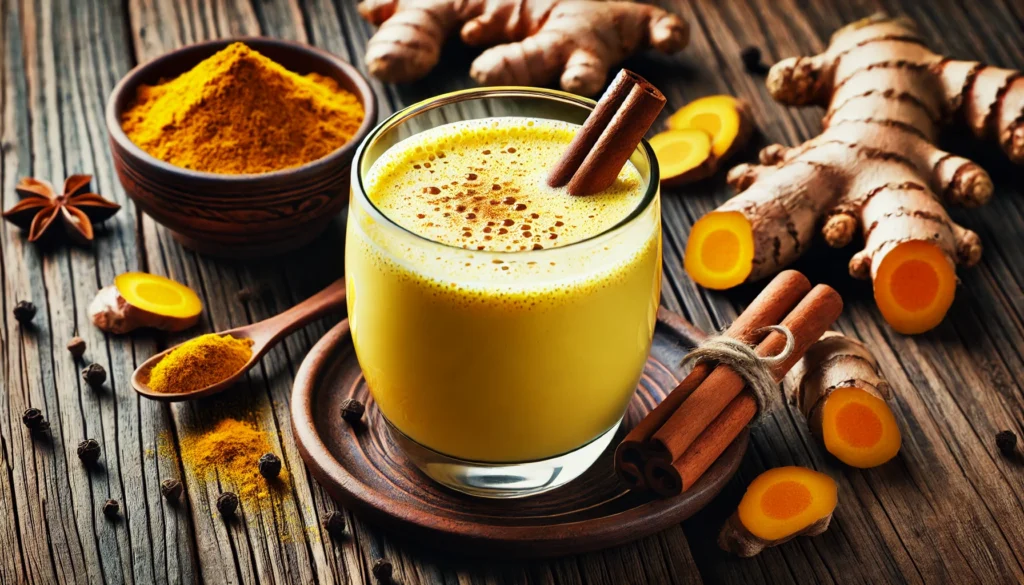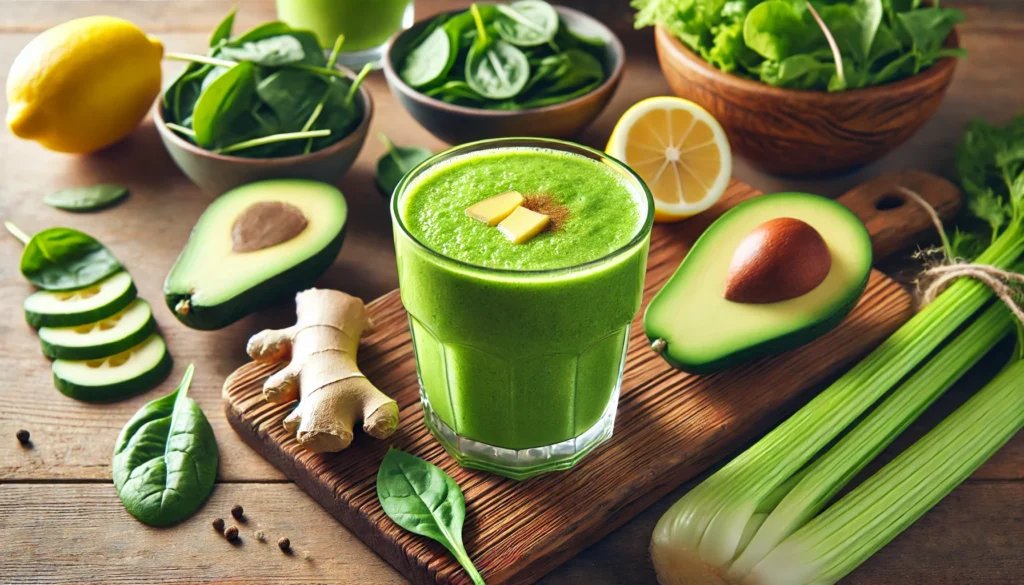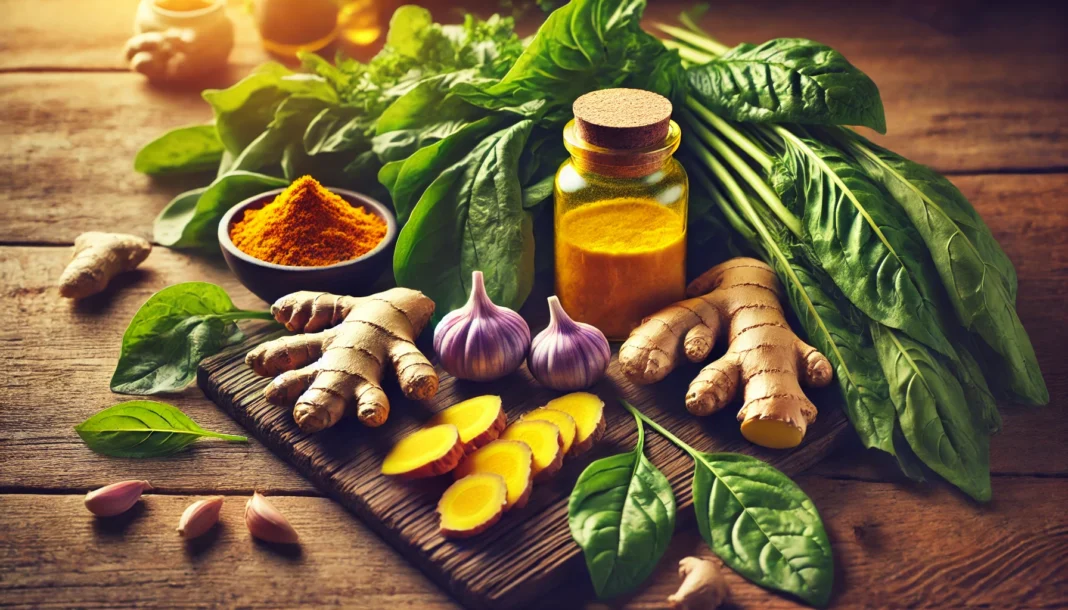Understanding Joint Inflammation and Its Impact on Health
Joint inflammation is a prevalent health concern that affects millions worldwide, leading to pain, stiffness, and reduced mobility. Whether stemming from arthritis, injury, or autoimmune conditions, chronic inflammation can significantly impact one’s quality of life. Learning how to reduce inflammation in joints naturally is essential for maintaining long-term mobility and preventing further damage. While medications can provide temporary relief, natural approaches, including dietary changes, lifestyle modifications, and holistic therapies, offer sustainable and effective solutions. This article delves into evidence-based strategies to help individuals manage joint inflammation naturally, supporting overall joint health and longevity.
You May Also Like: The Healthiest Foods to Eat Every Day for Optimal Wellness
The Role of Diet in Reducing Joint Inflammation
Nutrition plays a pivotal role in managing inflammation, with specific dietary choices either exacerbating or alleviating symptoms. Research indicates that a well-balanced diet rich in anti-inflammatory foods can significantly improve joint function and reduce pain. Incorporating foods that help arthritis into daily meals can make a profound difference in symptom management. Conversely, avoiding foods that cause arthritis and those that aggravate inflammation is equally important.
Foods to Avoid with Arthritis
Certain foods have been found to exacerbate inflammation, particularly in individuals with arthritis. Among the most common culprits are processed sugars, refined carbohydrates, and trans fats. High sugar intake increases levels of inflammatory cytokines, which can intensify arthritis symptoms. Studies suggest that reducing sugar consumption can lead to noticeable improvements in joint mobility. White bread, pastries, and other refined grains have a high glycemic index, triggering inflammatory responses that can aggravate arthritis. Additionally, trans fats, found in many fried and processed foods, elevate inflammation markers, negatively impacting joint health.

What Vegetables Are Bad for Arthritis?
While vegetables are generally beneficial for health, certain types can contribute to joint inflammation in some individuals. Nightshade vegetables, including tomatoes, potatoes, eggplants, and peppers, contain solanine, which has been linked to inflammation in sensitive individuals. However, scientific evidence remains inconclusive, and reactions vary from person to person. Those experiencing increased pain after consuming nightshades may consider eliminating them temporarily to assess their impact.
Anti-Inflammatory Foods for Joint Health
In contrast, numerous foods actively combat inflammation, helping to alleviate joint pain and stiffness. A joint-friendly diet includes omega-3 fatty acids, antioxidants, and essential vitamins known to reduce inflammatory markers. Fatty fish such as salmon, mackerel, and sardines provide omega-3 fatty acids, which have been shown to lower inflammatory compounds and improve joint function. Turmeric, rich in curcumin, exhibits powerful anti-inflammatory properties and has been extensively studied for its effectiveness in reducing arthritis symptoms. Leafy greens, including spinach, kale, and Swiss chard, supply antioxidants that neutralize free radicals, reducing inflammation at a cellular level. Berries, particularly blueberries and strawberries, contain anthocyanins that support joint health. Nuts and seeds, such as almonds, walnuts, and flaxseeds, provide essential fatty acids and antioxidants that contribute to inflammation reduction.
Lifestyle Modifications to Reduce Joint Inflammation
Beyond dietary adjustments, lifestyle factors play a crucial role in managing joint inflammation. Maintaining a healthy weight, engaging in regular physical activity, and managing stress can collectively enhance joint function and reduce chronic inflammation. Excess weight places additional stress on joints, particularly weight-bearing ones like the knees and hips. Reducing body weight by even a small percentage can significantly alleviate joint pain. Regular exercise, particularly low-impact activities such as swimming, cycling, and yoga, helps maintain joint flexibility and reduces stiffness. Strength training supports muscle function, reducing strain on the joints. Chronic stress triggers inflammatory responses in the body, so mindfulness techniques, meditation, and deep breathing exercises help lower cortisol levels and reduce inflammation. Additionally, poor sleep exacerbates inflammation, contributing to increased pain sensitivity. Establishing a healthy sleep routine supports recovery and reduces joint discomfort.
Supplements for Joint Health
Supplements can provide additional support for individuals seeking natural solutions for joint inflammation. While not a substitute for a healthy lifestyle, they can enhance the body’s ability to manage inflammation effectively. Glucosamine and chondroitin support cartilage health and have been widely studied for their role in reducing arthritis symptoms. Omega-3 fatty acids, commonly found in fish oil supplements, help lower inflammatory markers and improve joint function. Turmeric extract, particularly curcumin supplements, provides potent anti-inflammatory benefits. Vitamin D, essential for bone health, has been linked to increased inflammation and joint pain when deficient. Collagen peptides, which support cartilage integrity, may help reduce stiffness and improve mobility.

Frequently Asked Questions (FAQ) on Reducing Joint Inflammation Naturally
1. How does chronic inflammation contribute to joint pain, and what are the best ways to reduce it naturally?
Chronic inflammation leads to the gradual deterioration of cartilage, making joints more susceptible to pain and stiffness. It can also cause the immune system to attack joint tissues, exacerbating conditions such as rheumatoid arthritis. The best ways to reduce inflammation naturally include adopting an arthritis diet rich in omega-3 fatty acids, antioxidants, and fiber. Regular physical activity, such as swimming and yoga, enhances joint mobility and reduces stiffness while promoting circulation to affected areas. Additionally, mindfulness practices like meditation and stress management techniques help lower cortisol levels, which are linked to increased inflammation.
2. What foods should be avoided to prevent joint inflammation?
Certain foods have been linked to increased inflammation and should be minimized or eliminated from the diet. Highly processed foods, including fast food, sugary snacks, and refined carbohydrates, contribute to inflammation and weight gain, both of which can aggravate joint pain. Red meats and processed meats contain compounds that can trigger inflammatory responses in the body. Dairy products, particularly full-fat versions, have been found to cause discomfort in some individuals with arthritis due to casein, a protein that may promote inflammation. Nightshade vegetables, such as tomatoes, potatoes, and eggplants, are debated for their role in joint inflammation, with some individuals reporting sensitivity. Reducing alcohol and excessive caffeine consumption can also help maintain a balanced inflammatory response.
3. What role does gut health play in joint inflammation?
The gut microbiome significantly impacts the body’s inflammatory response, influencing overall joint health. An imbalance in gut bacteria can trigger systemic inflammation, which worsens joint pain and stiffness. Consuming probiotic-rich foods, such as yogurt, kimchi, and sauerkraut, can improve gut health and reduce inflammation markers. Fiber-rich foods support the growth of beneficial bacteria, helping to regulate immune responses that contribute to arthritis symptoms. Additionally, avoiding foods that cause arthritis, such as processed sugars and artificial additives, may prevent dysbiosis, a condition linked to increased inflammation.
4. How does hydration impact joint inflammation?
Adequate hydration is crucial for maintaining joint lubrication and reducing inflammation. Water helps flush out toxins and supports the production of synovial fluid, which cushions joints and prevents excessive friction. Dehydration can exacerbate joint pain by reducing the effectiveness of this protective fluid. Herbal teas, infused water with anti-inflammatory ingredients like ginger and turmeric, and fresh vegetable juices are excellent hydrating choices. Avoiding excessive caffeine and alcohol, which can contribute to dehydration, further supports joint health and minimizes inflammation.
5. Can certain exercises help alleviate joint inflammation?
Engaging in low-impact exercises can significantly improve joint flexibility and reduce inflammation. Swimming, for instance, provides resistance training without placing undue stress on the joints, making it an excellent choice for individuals with arthritis. Tai chi and yoga emphasize slow, controlled movements that enhance balance, coordination, and muscle strength, all of which contribute to improved joint stability. Walking on soft surfaces, such as grass or a treadmill, reduces impact while promoting circulation and preventing stiffness. Strength training with resistance bands can build muscle around the joints, reducing pressure and lowering the risk of inflammation-related pain.
6. What are the benefits of consuming anti-inflammatory spices for joint health?
Spices such as turmeric, ginger, and cinnamon contain bioactive compounds that combat inflammation and support joint health. Turmeric, in particular, is rich in curcumin, which has been widely studied for its ability to inhibit inflammatory pathways. Ginger possesses compounds that work similarly to nonsteroidal anti-inflammatory drugs (NSAIDs) in reducing joint pain. Cinnamon contains antioxidants that help regulate immune responses and prevent chronic inflammation. Incorporating these spices into daily meals, smoothies, or teas can provide long-term benefits in reducing joint discomfort. Additionally, using black pepper with turmeric enhances curcumin absorption, making it more effective in managing inflammation.
7. How does sleep quality influence joint inflammation?
Poor sleep quality can significantly increase inflammation levels, leading to heightened joint pain and stiffness. Sleep deprivation disrupts the body’s ability to regulate immune function, promoting the release of inflammatory cytokines that aggravate arthritis symptoms. Establishing a consistent sleep routine, minimizing screen time before bed, and creating a restful sleep environment all contribute to better rest and reduced inflammation. Certain foods good for joints, such as almonds, bananas, and tart cherries, contain natural compounds that promote relaxation and enhance sleep quality. Ensuring that sleep duration and quality are prioritized helps maintain overall joint health and reduces morning stiffness.
8. Are there any specific vitamins or minerals that help reduce joint inflammation?
Several vitamins and minerals play a crucial role in reducing joint inflammation and supporting cartilage health. Vitamin D is essential for calcium absorption and helps regulate immune function, preventing excessive inflammation. Magnesium contributes to muscle relaxation and reduces oxidative stress, which can worsen arthritis symptoms. Omega-3 fatty acids, found in fatty fish and flaxseeds, lower inflammatory markers and improve joint mobility. Vitamin C supports collagen production, maintaining cartilage integrity and reducing stiffness. Ensuring a diet rich in these nutrients, either through whole foods or supplementation, can significantly benefit individuals with joint pain.
9. What impact does stress have on joint inflammation?
Chronic stress triggers an inflammatory response in the body, exacerbating joint pain and stiffness. Elevated levels of cortisol, the primary stress hormone, can lead to increased inflammation and contribute to the progression of arthritis symptoms. Engaging in relaxation techniques, such as deep breathing exercises, meditation, and progressive muscle relaxation, helps mitigate stress-induced inflammation. Social interactions and engaging in enjoyable activities also play a role in reducing stress and improving overall well-being. By managing stress effectively, individuals can prevent flare-ups and promote long-term joint health.
10. How can an individual customize their diet to minimize joint inflammation?
An effective joint diet should be personalized to suit an individual’s specific triggers, preferences, and nutritional needs. Keeping a food journal can help identify which foods worsen symptoms, making it easier to eliminate foods that aggravate arthritis. Incorporating diverse foods that help with joint pain, such as leafy greens, nuts, and fatty fish, ensures a balanced intake of essential nutrients. Experimenting with different cooking methods, such as steaming instead of frying, can also impact inflammation levels. Consulting a registered dietitian or nutritionist can provide further guidance on creating a sustainable, anti-inflammatory meal plan tailored to individual needs.

Conclusion: A Holistic Approach to Joint Health
Managing joint inflammation naturally requires a multi-faceted approach that integrates dietary modifications, lifestyle adjustments, and targeted supplementation. Avoiding foods that cause arthritis while prioritizing those that help with joint pain can significantly impact long-term joint function. Regular exercise, stress management, and maintaining a healthy weight further support inflammation reduction. By adopting a holistic approach to joint health, individuals can achieve lasting relief and improved mobility, allowing them to lead active, pain-free lives.
natural remedies for joint pain, holistic arthritis management, best anti-inflammatory foods, joint pain relief diet, reducing arthritis discomfort, herbal supplements for joints, healthy lifestyle for arthritis, managing joint stiffness, foods that ease inflammation, diet tips for rheumatoid arthritis, exercise for joint flexibility, essential nutrients for joints, best natural pain relievers, inflammation-fighting diet, improving joint mobility, arthritis-friendly nutrition, alternative treatments for arthritis, gut health and inflammation, best foods for chronic pain, lifestyle changes for joint health
Further Reading:
Why and How To Start an Anti-Inflammatory Diet
An anti-inflammatory diet may be good for your joints
Mechanisms and applications of the anti-inflammatory effects of photobiomodulation


